Filter by
SubjectRequired
LanguageRequired
The language used throughout the course, in both instruction and assessments.
Learning ProductRequired
LevelRequired
DurationRequired
SkillsRequired
SubtitlesRequired
EducatorRequired
Explore the Holistic Medicine Course Catalog
 Status: Preview
Status: PreviewThe Chinese University of Hong Kong
Skills you'll gain: Patient Evaluation, General Medicine, Health Care, Health Assessment, Patient Education and Support, Physical Therapy, Preventative Care, Clinical Assessment, Pharmacology
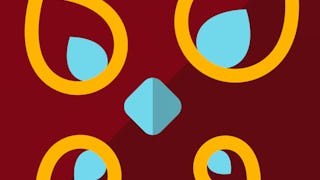 Status: Free Trial
Status: Free TrialUniversity of Minnesota
Skills you'll gain: Drug Interaction, Contraindication, Pharmacology, Patient Education And Counseling, Pharmacotherapy, Medication Therapy Management, Nurse Education, Pain Management, Pharmaceuticals, Patient Evaluation, Respiratory Care, Patient Safety, Health Care Procedure and Regulation, Healthcare Industry Knowledge, Chronic Diseases, Gynecology, Health And Safety Standards, Medical Science and Research, Patient Communication, General Science and Research
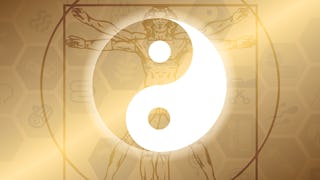 Status: Preview
Status: PreviewThe Hong Kong University of Science and Technology
Skills you'll gain: Preventative Care, Pharmacology, Immunology, Chronic Diseases, Nutrition and Diet, Medical Terminology, Medical History Documentation
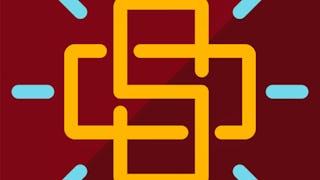 Status: Free Trial
Status: Free TrialUniversity of Minnesota
Skills you'll gain: Drug Interaction, Contraindication, Patient Education And Counseling, Mindfulness, Patient Referral, Pharmacology, Treatment Planning, Health Care Procedure and Regulation, Pain Management, Patient Safety, Clinical Assessment, Health Care, Clinical Practices, Nursing Practices, Pharmacotherapy, Health Promotion, Health And Wellness Coaching, Medication Therapy Management, Patient-centered Care, Music
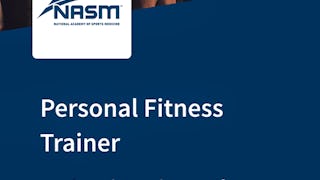 Status: Free Trial
Status: Free TrialNational Academy of Sports Medicine
Skills you'll gain: Goal Setting, Exercise Science, Kinesiology, Nutrition and Diet, Nutrition Counseling, Smart Goals, Health Assessment, Sports Medicine, Human Musculoskeletal System, Preventative Care, Public Health and Disease Prevention, Nutritional Assessment, Respiration, Physiology, Neurology, Automated External Defibrillator, Rehabilitation, Cardiopulmonary Resuscitation (CPR), Coaching, Health And Wellness Coaching
 Status: NewStatus: Free Trial
Status: NewStatus: Free TrialNational Academy of Sports Medicine
Skills you'll gain: Stress Management, Medical Nutrition Therapy, Behavioral Health, Mental and Behavioral Health Specialties, Psychosocial Assessments, Mental Health, Exercise Science, Social Determinants Of Health, Nutritional Assessment, Social Sciences, Nutrition and Diet, Cognitive Behavioral Therapy, Health And Wellness Coaching, Kinesiology, Medical Devices, Nutrition Counseling, Coaching, Clinical Nutrition, Physical Stamina, Health Assessment
What brings you to Coursera today?
 Status: NewStatus: Free Trial
Status: NewStatus: Free TrialNational Academy of Sports Medicine
Skills you'll gain: Nutritional Assessment, Meal Planning And Preparation, Nutrition and Diet, Nutrition Education, Pharmacology, Exercise Science, Critical Thinking, Sports Medicine, Drug Interaction, Food Quality Assurance And Control, Physiology, Decision Making, Health Promotion, Health And Wellness Coaching, Regulatory Compliance, General Science and Research, Overcoming Obstacles
 Status: Free Trial
Status: Free TrialJohns Hopkins University
Skills you'll gain: Oncology, Medical Imaging, Patient Education And Counseling, Diagnostic Radiology, Radiation Therapy, Molecular Biology, Diagnostic Tests, Clinical Trials, Pain Management, Preventative Care, Treatment Planning, Urology, Patient Treatment, Immunology, Epidemiology, Surgery, Cell Biology, Care Management, Biology, Pathology
 Status: Preview
Status: PreviewDuke University
Skills you'll gain: Physiology, Respiration, Endocrinology, Anatomy, Pulmonology, Cardiology, Nephrology, Urology, Kinesiology, Vital Signs, Neurology, Biology, Nutrition and Diet
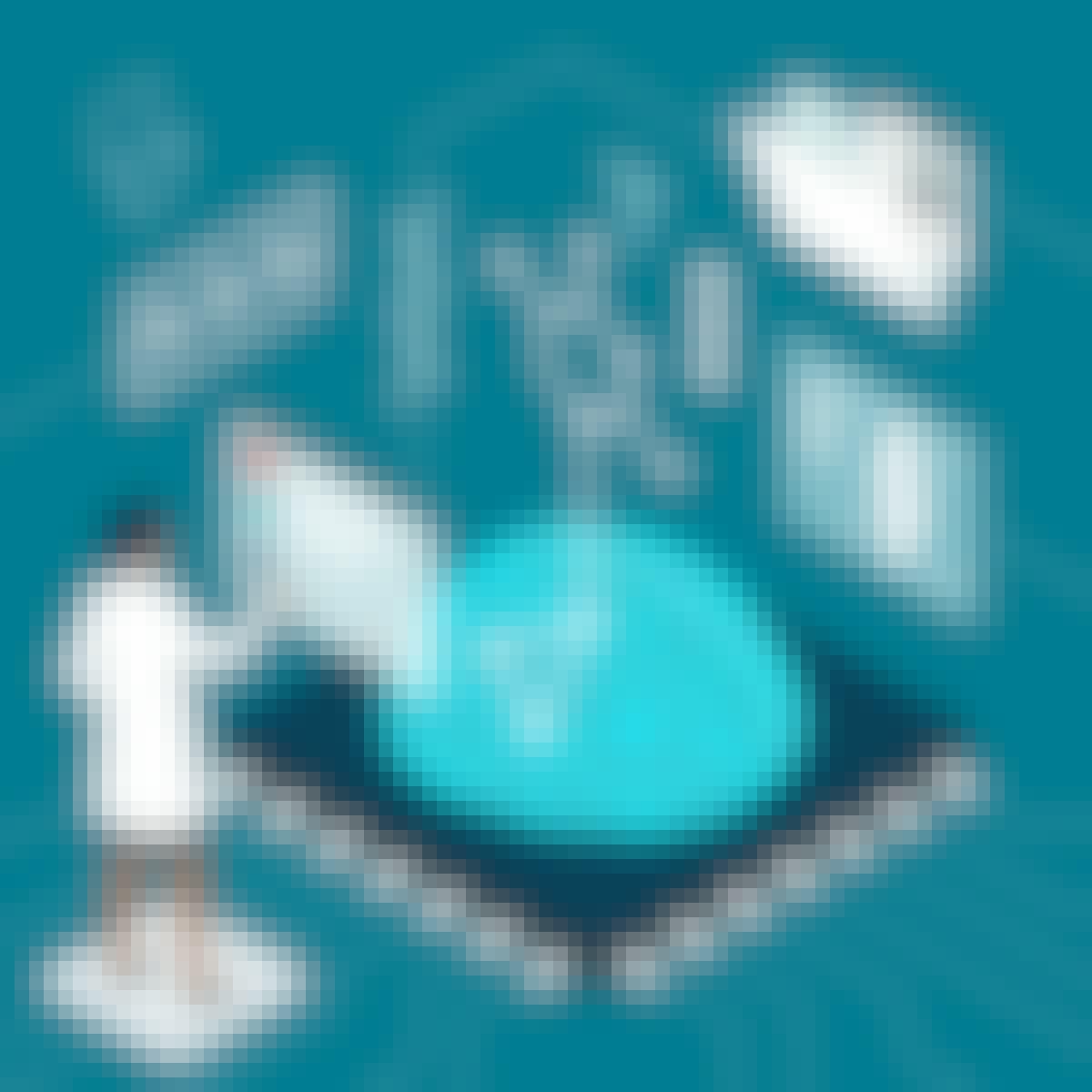 Status: Free Trial
Status: Free TrialStanford University
Skills you'll gain: Feature Engineering, Healthcare Ethics, Pharmaceuticals, Data Ethics, Clinical Research, Health Systems, Healthcare Industry Knowledge, Unstructured Data, Health Care, Health Informatics, Data Mining, Managed Care, Responsible AI, Clinical Data Management, Applied Machine Learning, Medical Billing, Electronic Medical Record, Machine Learning, Artificial Intelligence, Clinical Research Ethics
 Status: Preview
Status: PreviewUniversity of New Mexico
Skills you'll gain: Cultural Diversity, Preventative Care, Health Care, Health Education, Pain Management, Nutrition and Diet, Stress Management
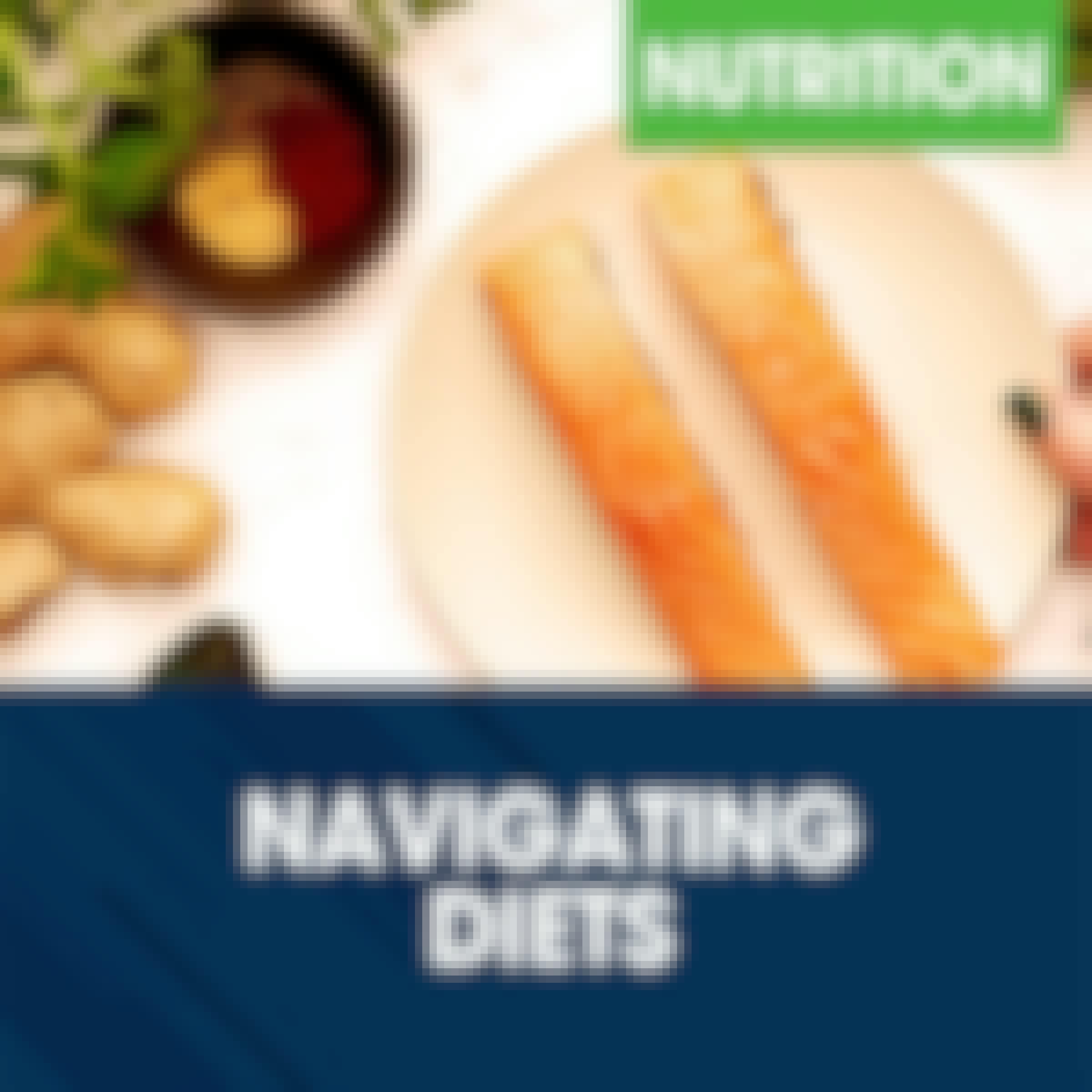 Status: Free Trial
Status: Free TrialNational Academy of Sports Medicine
Skills you'll gain: Nutrition and Diet, Nutritional Assessment, Sports Medicine, Scientific Methods, Health Assessment, Psychology
Holistic Medicine learners also search
In summary, here are 10 of our most popular holistic medicine courses
- Everyday Chinese Medicine: The Chinese University of Hong Kong
- Herbal Medicine: University of Minnesota
- Health Concepts in Chinese Medicine: The Hong Kong University of Science and Technology
- Integrative Health and Medicine: University of Minnesota
- NASM Personal Fitness Trainer: National Academy of Sports Medicine
- Holistic Weight Management: National Academy of Sports Medicine
- Nutrition Mastery for Fitness and Wellness: National Academy of Sports Medicine
- Cancer Biology: Johns Hopkins University
- Introductory Human Physiology: Duke University
- AI in Healthcare: Stanford University










